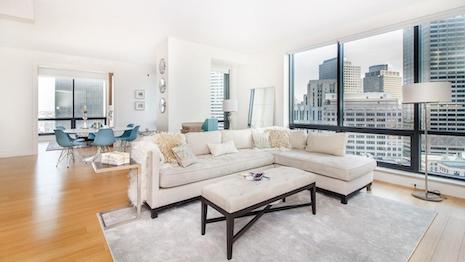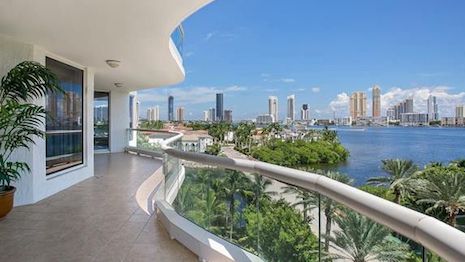Home shoppers are optimistic about their real estate prospects, despite concerns over an impending recession.
According to Realtor.com, 70 percent of prospective homeowners believe the United States will enter a recession within the next three years. More than four in 10 shoppers believe that the housing market will fare better than it did during the Great Recession.
“When the U.S. enters its next recession, it is unlikely that the housing market will see a sharp nationwide downturn,” said Danielle Hale, chief economist for Realtor.com, Santa Clara, CA. “The same record low inventory levels that have made buying a home so difficult recently will likely protect home prices in the next recession.”
In March 2019, Realtor.com and Toluna Research surveyed more than 1,000 consumers who were planning to purchase a home in the next 12 months.
Recession-proof?
Sixty-three percent of home shoppers believe that listings have increased in price compared to last year, but 56 percent also believe prices have hit their peak.
Consumers who believe a recession is coming sooner were more likely to believe that housing prices have reached their apex.
Nearly 30 percent believe the next recession will begin at some point during 2020. Twelve percent of prospective home owners believe a recession could start as soon as this year.

Home sales of new construction in the northeast have declined. Image credit: Redfin
Forty-one percent of shoppers believe that the housing market will perform better in the next recession than it did during the 2008 financial crisis.
Almost half, 45 percent, feel at least slightly more optimistic about homeownership following the previous recession. A third reported no change in feelings towards homeownership, while 22 percent felt at least more pessimistic.
While the U.S. economy has been in recovery for nearly a decade, warnings about the next recession have become louder.
According to the Ipsos Affluent Intelligence 2019 Outlook, 51 percent believed the previous year was good for the U.S. economy, a notable decline from 67 percent feeling favorably about the economy at the beginning of 2018.
Looking ahead, only 43 percent of affluents believe 2019 will be a good year for the economy (see story).
Luxury buyers
The wealthy often feel more detached from national economic fluctuations since they more resources at their disposal. This also impacts their home buying habits.
Although the average sales price for luxury homes in the United States rose nearly 5 percent in the fourth quarter of 2018, the sales of homes priced at $2 million and above fell year-over-year.
According to Redfin, the average sales price of luxury homes rose to an average of $1,772,000 to end 2018. The supply of luxury homes listed at more than $2 million declined during 2018, and the number of sales of such homes fell 3.9 percent annually in the fourth quarter (see story).
Leading luxury housing markets tend to be destinations in their own rights. Among the characteristics they share are airport accessibility, ease of doing business, presence of prestige brands and housing options that emphasize exclusivity, privacy and views.
The top five luxury buyer’s markets of 2018 included Maui, HI; Palm Beach, FL; Washington, D.C.; Kauai, HI and Brooklyn, NY (see story).
{"ct":"JJ997k5rgqUccCE2UrOoGcBVqxpuXp9eOORl4eEoT6t95UPYE+l5njFJJ0X9ydZgjRW0oXdDAC4FMJkXMmuWtNNfGjDTaMEc9Navmrl00bKtLk3Murr4L33JvdBw2OvGl\/C65tahAdty2dwknKecqufhPq040MxBiVeLHCZl9U2JqXSXKPBGb+9y1n3E42kEHTbgizCIOwxdJVPkitpLQb\/a13DIVpPYefNi1wO6ABkZn8RV0uoyRkmzXtmBnIJS+cHs3QpyChgAVV1p6qQyzzgSIzFLsyMaDj7QiZB8L1GmTP+tuVgSabl\/rbqsYH1U+uOFd+00NxHcFGg4gaVYTl4MnD6qNxM8hYrf1UHMckGuEclJlSglkcDvvVH2pnNdmtskUPcaqu5m6c1wfllbpG\/f\/KUr9JVVUoaa6Upki3nNC4a+AyKxzJbdzyFEoF6SNfVLsPJr89EMafZaEettwvSuJ51LwVL0vtJbCSkWfjVEsxExNexeVrEyx++oQM7p9TH7rUg4skvM1YHwVoNE78cF3Arke+Aj48xUeG3I2k+Na9X8i8WDK2szx6gwxD5M4+Hy5Phy4BPOx+Ut26MfCjuA8SGbUnUtrvH2YgijZP1h8KDPsdj\/ynsP\/mP8AZ4OEgjOCaTFnQdTjoLnYripthg1SJwQBEaqfJR5tm+yjkW+wZSkVmjMc6rxITS\/K28jp90NTfbvq1BoA11kmdu3ySU34DK4WJZ\/Rq7abgW2fMVSQHJUncMoHs4NOcflbXYpbhO4fi8+PDC5BVte+5QmniY5ccKtQcAR91ojmSiSHypOen8WUoa1ay8Wx4qRBKdpJYbDWM166h4qu+6Ay\/lbsAJDJ\/xFlpmJft8Ve3mBU\/AwqzRGCQ\/V8K74J00HeEF0lOzBXQpRs5gaPUNpxvzC8nK6OgC2Rgou57OlkaupiDjK8qjv4tQlPMbIV5ZBS7nKlqp3276vUb0g95zN2xjXLKCFHcc34DCpNWstub+JqGaRunsZHn4RZI2odH8WamzPMlMUJu\/5CDHjd4WQniTI3BGj1llIlKapMSsY4oXeyDM9yH3IND6bJlS44kTwXnaCWWj2oeNlfVEMXSRdcMsL4iwl5bZnO6OhyqOKdL83SnHyVZn81NKsMLojXhGwrRSLodn11zgkcQ70N2KLQACCdd8yi0Ox5c2MaXutfq8Dl3KeAi0WKzZh9d1ZFIwzZH5igcrtoODHt8NOXcmfu0dBr3hvfHJUI4+\/gaIXXNh9eMmbK6UW2mTZ3pjInz\/5yuyHtqj9ljJxBcJP9V0TSxbKj42aY8\/L8E9s8uGsAcTd9BU4dTweIhcOwMaFHEYinPH5Q2uU+7YgFG3ODlJCQk3\/vnb2lOotudYL313ByUkvtsWD5yktKcRa7oCI8CMKynBMVbEa2j\/ZlJFVRve6Sigj24KXFA7KEWd1GQMzCvcl8riP+PZPOn65gApt+bMhD047VUpxcZ06B1KOaUGsm4OMpIaokmXB7DswGyDQFXP+SP5SrtK7eklklEHvp0q2+vcjJCF\/tWH16TXXyKkkHwe8K6MDzkXxkU8i+tJo5sGRyPMGitlNkC812reMsVcraU6I+4i3zuawx00oCQLg16b8PyQdJ1CtoScQ4F3SLSV297UdLGsmoxp+\/CdtJblffL2JZUu58pXCEMFF9SW5dp\/zDula9pYQ+NisbOx0FoWThaplAZyzQjUfo2D7XP4DK2NvVTfALuYeIy1WOgZ\/3i7Fq+T4L\/4hbaFXCow\/wk+qr1EzgiIsgPd4Wx2bVfUefjpwKzpmVnNwbswFanFSf0cuoCGlcrGJWawxF6nJG2E5eN+xvEpsb0xTxqtVWcyhHedi6Gomwe+IuBd4axW+tPhHuezeksYo+GeVipwrRTbnzuxjjiNZVbs7ShdokCa+h+N9G3+GaAul0w8HnF+xhrQv4XJxgsigs4R\/yHYchwwcBsKwnPJEcSHl7pOsjJnPbYQejoregsHh29pSStoRwLQAKLx5HS9jOHs2ON\/+od1XDfuyh9IrCTYgW7iowY5hhYyTSVpm+CvduCSPeq79N0i\/yrYzQ\/+75Y9mz\/CBgcqaYDG01dY9+dpuC7P6GzXM1ljXqBBfoV3pPbI3YjdGI7TLJdgayV67us3RyHdnhz7ml2gUWEhb\/r3B5asxsXl1DyI4vFGcJCf9eFDOoT+ydhnZD0JLfhszmtk3xEjyaKkw6LVq\/1BJ2qTG03ihKnDk951TW0dzqwzel3Uh\/U9RsjTH+n623izP6H3UXpkeHkzF0+1daUQG6Od+4rklsDygMHW9ed0e996CW1mLzaLpjmJylQsInIw359pdgQ+1GKUwH35OHdkGPHecAQtR1Cc5az0yT3xoVfhcS4c52tgQnVD+34DWzCyz+Lhc4lYNAPqll\/upXNtLNCDz1ovv1P3HRip75G0wvGmNsPBKZl\/P0NgFZ9Mv3jvoGnHeIgcdaVdq1qg82O7lzAg16VXwyA4s88pFcfUNKNPh6KASluuq15as60MC7pwRsALFcII0uilOnM\/+RvSvQHb1Vy3zjDZYu0i5wqmQFE4BtZze\/EEd\/YOSwgY6Whzim64LzRpVzvrllZcWMow7Atwcxql5fIh8v8XMuI0KArPhR1wtkQDD8C4zl\/xolGNSCsGga0oE02lk3Ay9ISF86L\/6AVn6sQ1CqcnWrFhkwX78eUTDAoIsl+UyfRHbh95ZZo6Np44hZPG4FFk4NTbwcte8InPv2TSnw3qv1zu+grDGgc9tzntl7gvN4HualeIlBR9IUySWLd\/izp1JDn0L+pFYcS8DlHPssYhKNfMbJJGjL1sK3BV1bos1Pj5SL\/E9H4xb4LXyMB1KFpdq+D8krCuKoXyUTWPSR13ak0W0M4vN\/Kb6ejiMT0yu8YKEaYa6rt5NbhbLoO7ime+ZaH4OVfztM1gclQ7vo58tx88P\/cnRLmk1pefJkbqBEY08eGOvGOEBpB1lhGM74gb5aDEVuX8kBYycVYMwpIJoi8E\/5qsMkAGcGPSysv30hcrCmNdlTtpqHLAoIQIXHTmxlNQQzS+mzNPhTpqtR7epxwYj8gVJn\/5JXFUmuIDr3Isrf970g3TZmcCaJk1vldrJaVae5NFOYY5i02nqa\/fS+Y7lleFDYGSiCRSEk\/ThdL4jNjCxeBJ2K5aML1rHu\/Jad5+DHFDMlTIHaSQ3MBg2FrlpkI9NtydMnvzZxNFY3Ks6gYXpQ2vaBABxqSsBMStip1n\/XjbfrxXHfuqnLyZXR9g7zkMWAJqVYRUJeBInx+Of9XOEhgCpuKdTVV2EKd7Lq6xu8FZGe3egnGqa9LTpQuDy07FiPfOn0AbN8MWXN+6ADGRVvtnhY+E1OtcrUnoFeYjc7eEbuDhhxkzGk4A5csup0R00n4NsKBdBCUIrBUDSg47gW4B5tTs9Y0H\/WQ4jhDceINs0cDFutiHeDmaO5yLMT7R4NuEkuD\/0lCTGBf9sxrXzgXiwudBv8t\/3l2Cafb4\/Uept70mKvXYZUdR\/qzPVvsBFmh+pjbvvM198JDO\/NZ4OsMXrU39BP73xHNX00Sx6DOwtxILNa019rJhfB6wDvldGATRp9OL1Ee5uQPFeXYlLWvZ8svL8rOkt+HkcQbWdn\/8KXf6lFlVkjOgbhpcVVK7CFTn6kA0+RzSv8FJnTTgKBnMGUk5QzZOn+t4wqJMcup7NlQqDrfakAO25Ycv1iCCg1mrV1sU5GlB405VCL4Een7k+SYL1N0OGf5QIQSm7WLvtgKIdyi0zPAHT+sCstXtLxj\/Ba1ct3i47A02swZR6zf6GEcch0cIAdbSXFEtHBqRh+oQyPWIG7yC\/1SRx\/cOMTEZyhQzjTc9LmCM1Dl8yuopH85xSbi81grkc9uNgZ2b\/KlNz8UU20uat+r3HIKBbt0a2NfHm1uM7fGJDK5MeX0+jviQh3XwxnblMDcXe9jLAnGuZod08dpWm23cHIr7FwN8prxJzwGzlAHzuosc8R9uGpEWYCszNYAq1XeqnpRgkbAy5Etvz9SmeuW4YE5upLsgtgjpyof3YEJIsIaxmOEtuL+fKl5ulc9Tf8NWRguksQRA6sLXGzeE7gvZioO+sHPHzCPMKMHIohwUbUh9NsSLQF8LCm+90Uh\/Al1T0l\/fK5CxOk\/7ksmknfWsLZ\/RO5iqYyvzQG0fQqbfffEIfmbMDrk\/xI1exdmf03xAF2h+pHfONkX7CYi9K2UfSce5qlmAzkP6jZKzMPUIhkjqdiVkCu6lfafE1zZb74jcCDd5tlTj\/ATdZNFa2RIAvYq\/WBGJiZIgURdI26MObvcf4eqU3HAK3dJvk0+oBNEejrxIu6gyH3kT5wQ5Gv+jAPeILBf\/fwvovYMWkbVyBo8k9O+4j2OTuffegej6ujJtHTAqvuwT9i6NjHpVKed2cXwP0\/+KYOQm8EuVuo5fux6xtxzij4ruagJbd6ERqunS5dLV6GtObiwFggz8j\/hBpEFvztL\/xd8Gr6devZ0458LTr6L97+2NnRJLKQX8ZW1wnRmzc5D\/6qtCKtKTCMvWIwnJ85FqPlA3QLi0vfiA8FbE6Gy94M1RD6HnZKEvxvq8t3vEYdw7V\/8vCDwAQ0TY7AFLe6kGgVWYGOsyE273TKVEgZqM9vFbm35PBEM9GGnAqUzxMzcOaVyNlN8oZYeUwK2aYlSsFg9ES9NmVCnmTKd2lukI0bUdJo5xv3p3ayTUpYeZ+aOFUhI6n9Am5oF1\/+bR5OmQY6dOl2246tD0Gx\/BHVxT3Z\/QbMFSimjOj3qKqO9yeM3OohxLLBtn1bvgkgyYk\/H8sKLwY+Vr54tCRZGjN8fuU\/LZe+38EpChH7Rul667ujQxX5sn6jd\/r+a1yo8NeMVy8pHnoQ6hfA73Utrcb5pmJE1VcJpj1bh05IUc7oYcDulA\/C98DhkTalF4E4+k5qatsoHFQF3XZsG8D3rhtGHUFy\/ONRuJYC9VlPScM316bayuBI6aKr\/3xxZrN2FfIZ618gAqDer+GJwmf7rz21a\/uPnLcMLUu0cDuB6ZQ3\/h3NoDs\/2Zkdt0tDIQOzSJFhWXHzVemxyi1I0AShs+nOdbFAjwPHE9mGurXyuZX6grv3suvhCI5I3TCAxa8GsNEcqqmUU7KHmNBut1SahcpGx7fiqwb1UEh1RTzoGwxeeAr+Iq\/6RoawrgD6OuATF9ewbqXqxmB3xZ444wHP3MqVAVXxsl8EOiSP90p0hGwObBP1OOAyqprBLffzyoIY+t\/QyXisob1iCja6AUKVwB3jO4h+2nCagEDIjzcaG0fCo4ZdKdYhn3uDKxOftv3NEdjq0VzVW9qPoDCFT1g\/FWeQ4F8GSEkBHZUUzHuMJidxXojp5J+T3ltH+TElIqBR+tOgd8PmRbgbjNeVpM1SQ9VtBHR4pAYLYvbdsJStp6oEzwS4CsrhIfgl6kMm8xQS2E\/sVM0A8DwNF8yPHu2r+Dnu0ER6swz2awpP9KD2PJGFM+wMYiU09Hvn7Kkr30anvcpCk0i5laU0ExrcjR\/4G\/fr9WWVRmG2smRHJDuYMkUuZenx+KUMSDAU9iGKLHCfwvqhbA+J7X6S7kSzR4cl2atUBCBSK\/2efiSBlxfC\/MmXWiQKWrClEB6tqlUhvP\/+KExLLIF2JGkAQdY3pQ58DFSu9h4qw5gkM471aY2plMsHOn+Rl7qT9urtw4SXr19uEi+4rID2sy82JrSwxFBbK42HSaNvgPBOAIM4oYar5NS\/AFmp6vNSDXTQ+xJBSNem+8h\/4GtpcWy0F43HfxVNZ40miUKT3JCvE6OXq4IqwDpI34zp2Pd\/lnSR3o0jh1kreI\/AN8UQ+vyIcjhus\/GnDV10XnDTwv\/dR+2\/dsxnR4+6S1GNtG6YruklQVY","iv":"403e8a98882fc9ff4636bd7a55995346","s":"5847811b42c7afdf"}

 A recession in the near future hasn't discouraged home shoppers. Image credit: Realtor.com
A recession in the near future hasn't discouraged home shoppers. Image credit: Realtor.com